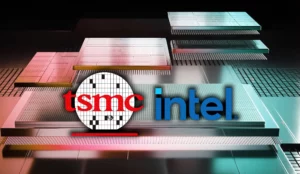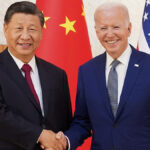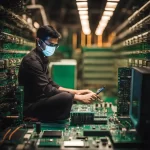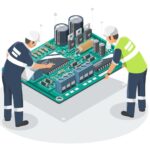Introduction
In a significant setback for the European semiconductor industry, Wolfspeed has announced delays in constructing its $3 billion chip manufacturing plant in Germany.
This development underscores the European Union’s ongoing struggle to boost domestic semiconductor production and reduce reliance on Asian manufacturers. The semiconductor industry is the backbone of modern technology, driving everything from smartphones to electric vehicles.
In recent years, geopolitical tensions have increased. Global supply chain disruptions have become more common. These issues highlight the need for diversified semiconductor manufacturing. Localized production is now critical.
The European Union has responded with the Chips Act. This legislation is ambitious. It aims to boost the EU’s position in the semiconductor industry. The EU wants to be a key player in this vital sector.
However, recent delays, such as Wolfspeed’s postponed plant, raise concerns about the EU’s ability to achieve its semiconductor goals.
Background
The European Union launched the Chips Act in 2022, targeting a significant increase in semiconductor production within the region.
The legislation aimed to raise 43 billion euros ($47 billion) through public and private investments to strengthen the semiconductor industry.
This initiative was partly a response to the global semiconductor shortage that the COVID-19 pandemic exacerbated, disrupting industries worldwide.
The Chips Act was designed to reduce Europe’s dependence on Asian manufacturers by promoting the production of cutting-edge chips domestically.
Read More :$2 Billion Boost: Onsemi Ambitious Expansion in Czech Republic – techovedas
What is the Matter?
Wolfspeed, a North Carolina-based company, planned to build a semiconductor plant in Saarland, Germany, to produce chips for electric vehicles.
However, due to a reduction in capital spending amid market weaknesses in the European and U.S. electric vehicle sectors, the company has delayed the construction of this facility.
Wolfspeed is now focusing on ramping up production in New York and has pushed back the start of construction in Germany to mid-2025 at the earliest, two years later than initially planned.
Read More:ASICs vs. FPGAs: Choosing the Right Technology for Your Design – techovedas
Reasons for the Delay
Several factors have contributed to the delay of Wolfspeed’s plant in Germany:
- Financial Pressures: Wolfspeed has been under pressure from activist investors to improve shareholder value after its stock price fell by approximately 51% over the past year.
- Market Weakness: The European and U.S. electric vehicle markets have shown signs of weakness, prompting Wolfspeed to cut capital spending.
- Prioritizing Other Projects: The company is currently prioritizing increasing production capacity in New York over new projects in Europe.
Impact on the EU’s Semiconductor Goals
The delay of Wolfspeed’s plant is indicative of broader challenges faced by the EU in its semiconductor ambitions:
- Slow Progress: Despite the Chips Act, few projects have moved forward, and even fewer have received the necessary state aid approvals from the European Commission.
- Geopolitical and Economic Hurdles: The EU’s semiconductor initiative faces competition from similar efforts in the U.S., China, and Japan. Additionally, Europe’s largest economy, Germany, is grappling with a budget crisis, complicating its support for major infrastructure projects.
- Political Challenges: The rise of populist parties in Europe could weaken support for renewable energy projects and introduce policies that make it difficult to hire skilled workers.
Read More: Ilya Sutskever, Co-founder of OpenAI, Launches Startup to Tackle Safe Superintelligence – techovedas
Moving Forward
Despite these setbacks, some semiconductor projects in Europe are progressing:
- TSMC plans to start construction this year on an $11 billion plant in Dresden, in collaboration with Robert Bosch, NXP, and Infineon.
- STMicroelectronics received EU approval for a 5 billion-euro silicon carbide plant in Italy and a 7.5 billion-euro plant in France.
- Onsemi announced plans to invest up to $2 billion in expanding its operations in the Czech Republic, pending EU approval.
- Infineon is on track to complete a 5 billion-euro power chip plant in Dresden by 2026, despite not yet having EU aid approval.
Read More: How Do We Measure Large Language Model(LLM) Performance? – techovedas
Conclusion
The delays in Wolfspeed’s plant and other semiconductor projects highlight the complexities and challenges facing the EU’s efforts to bolster its semiconductor industry.
While progress is being made, the path to achieving self-sufficiency in semiconductor production is fraught with obstacles.
The industry will continue to monitor how these projects develop and how the EU navigates the intricate landscape of global semiconductor manufacturing.








